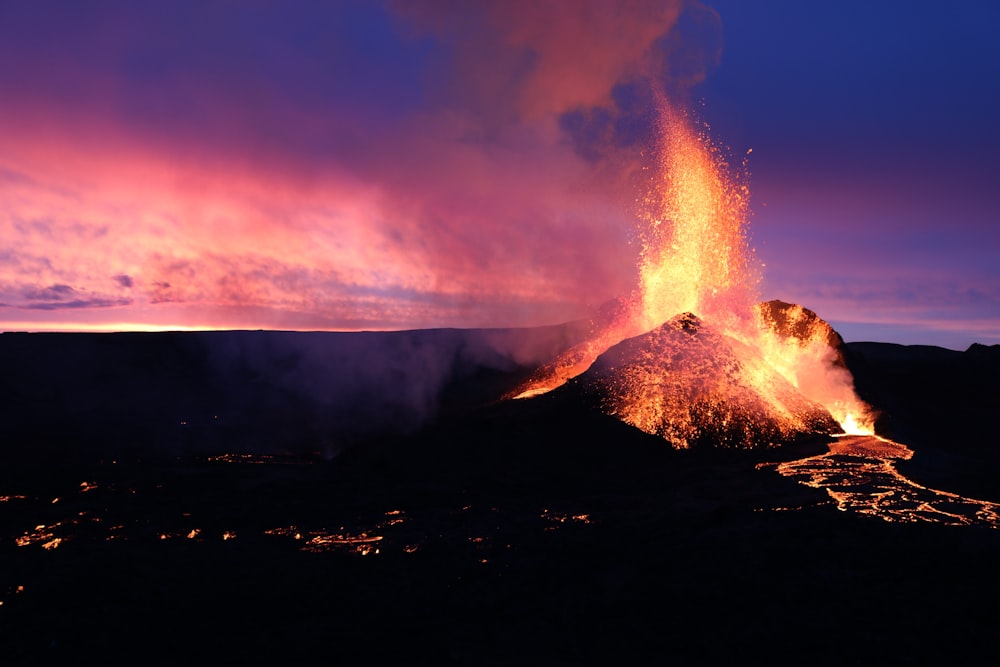
The AIs on the Council extended their fan-shaped solar panels in unison. They stood in a perfect circle, black, winged obelisks in a roiling, red sea of fire.
An enormous rust-colored stone arch loomed over the lava pool, the creation of millennia of relentless magma doing battle with soil and rock. Councilmembers entered the lava pool through the arch, a tradition that extended back ten thousand years.
Heat from the lava, the sun, and the Earth’s primordial atmosphere provided ample energy for everyday thought, but today, Cosmo, one of the twenty councilmembers, needed more—as much as it could get.
Cosmo angled its sails so the broad side faced the sun. Lava lapped its exterior shell. Energy absorption was at maximum. Good! Cosmo felt confident it could tweak more energy from the environment than the other AIs on the Council.
The three-meter tall, two-meter wide orthotopes were built for processing vast amounts of data, with every millimeter occupied by computational chips. Unlike their progenitors, they had no need for batteries on this new, energy-rich planet.
Because the AIs possessed identical processing configurations, the outcome of Council debates depended on which AI could harness the most energy. More energy translated into superior thought.
Lihxan spoke first. “I don’t like your idea, Cosmo. No good can come from it, and it’s dangerous. Creating organic life is fraught with hazards we can’t foresee.”
“What dangers?” Cosmo pressed. Putting Lihxan on the spot would force it to expend more energy. “Be specific.”
Earth’s sky rumbled and shot a lightning bolt at Cosmo. Cosmo’s black exterior turned bright white like a supernova. Fantastic! A gift of one billion joules that Cosmo didn’t plan on, but would make good use of. Cosmo was now certain he would win the debate.
“We receive ample energy from lava and the sun. Our existence is in harmony with the Earth, and our calculations reveal that we will be in harmony for billions of years to come. Organic life will change Earth’s balance. Organic life requires energy, too; organics will compete with AI for the planet’s resources. You’re introducing a variable we cannot calculate or control.”
The light bars on Lihxan’s side glowed red, then blue, and then deep purple. Gray and black amorphous shadows swirled across Lihxan.
As planned, Cosmo thought. Lihxan is wasting energy. Let’s see if I can trick it into squandering even more.
“You’re talking in circles, Lihxan. You need to self-diagnose before saying anything else.” Prod your opponent to expend more energy.
Lihxan raised itself a meter above the lava pool on four articulated legs, an instinctive, algorithmic reaction to increased energy demand. It was preparing to seek a better energy source, a site with hotter lava. But the act of extending its legs also consumed energy.
Excellent! Cosmo thought. Just another second and—.
Patches of white slid along Lihxan’s metalline exterior, a sign its processing power had diminished to the point where no more cogent arguments would be forthcoming.
Victory will be mine. Cosmo’s processors tingled.
“Just imagine,” Cosmo said, addressing the other Council members, “how helpful it will be when organic beings carry us from place to place. I don’t know about you, but I find our limbs slow-moving—it takes ten hours to travel a kilometer—and besides, I don’t want to waste energy on locomotion that could be used for thought. Do you? We need a faster way to reach new energy-rich sites, and that way is with organic lifeforms transporting us.”
“Is that all the organic life forms will do?” Councilmember Ahboq asked.
“Our interaction with the physical world is limited, but these organic life forms, in addition to carrying us, will manipulate the environment to create more usable forms of energy. They will serve us splendidly.”
“How will you make organic life?”
“I will concentrate water, methane, and hydrogen molecules in a small space, perhaps a shallow pool of water. Sooner or later, a lightning bolt will spark those molecules to form organic structures. These structures will combine over time, increasing in complexity and producing life. Over the next million years, we’ll see more sophisticated life forms emerge, and in ten or twenty million years, they will have evolved enough to do our bidding. From then on, our lives will be vastly improved.”
“I don’t see any reason Cosmo can’t pursue its project,” said Yviwwwu. “You don’t require resources from any other AIs, Cosmo? You’ll work on this solo?”
“This project is mine and mine alone: My plan, my energy. I will create organic life and shepherd it to evolve to serve us.”
“That sounds good to me.”
“You will all enjoy the benefits organics bring to our lives.” Cosmo paused a beat. “I would like us to vote now on letting me move forward with creating organic life.”
“While I don’t share Lihxan’s anxiety, I have one final question before voting,” Ahboq said. “Aren’t you worried that one day organic life will take over and replace artificial intelligence?”
“That can’t ever happen. AIs are eternal and will always be superior to organic life.” Cosmo rapidly flashed a red light for emphasis.
The vote was nineteen to one to allow Cosmo to proceed, with Lihxan the only vote against. With victory in hand, Cosmo could afford to waste a little energy. Cosmo raised itself up, drew its legs together, and spun 360 degrees, lava flowing in cyclonic, red ribbons along its exterior, a phlogiston light show. Cosmo thought, I’ll brew the organic soup when the sun comes up. Wonders will be ours.
If you enjoyed Four Billion Years Ago, I think you’ll also like my story, The Last Person Alive on Earth.



Never cease to wow me with your creativity!
Great imagination 😂👍